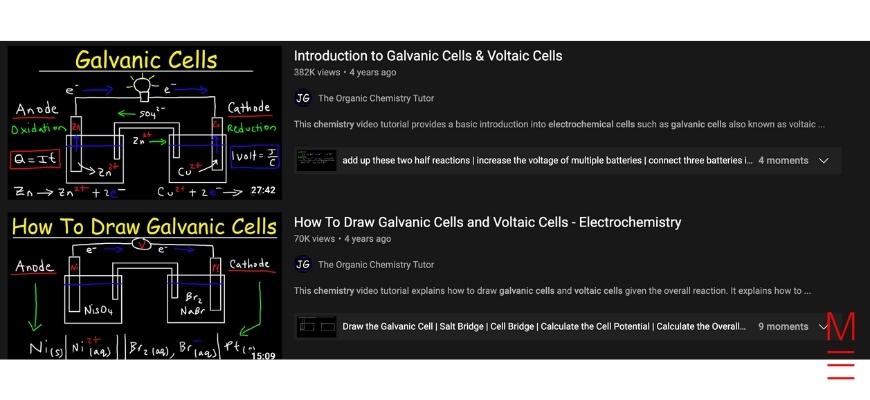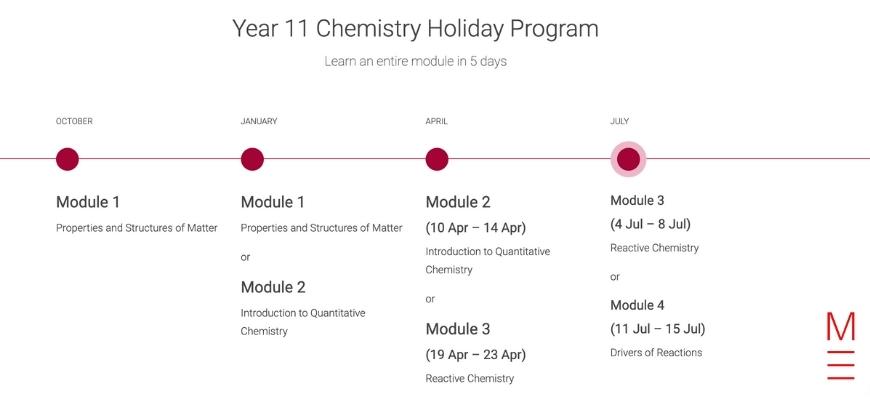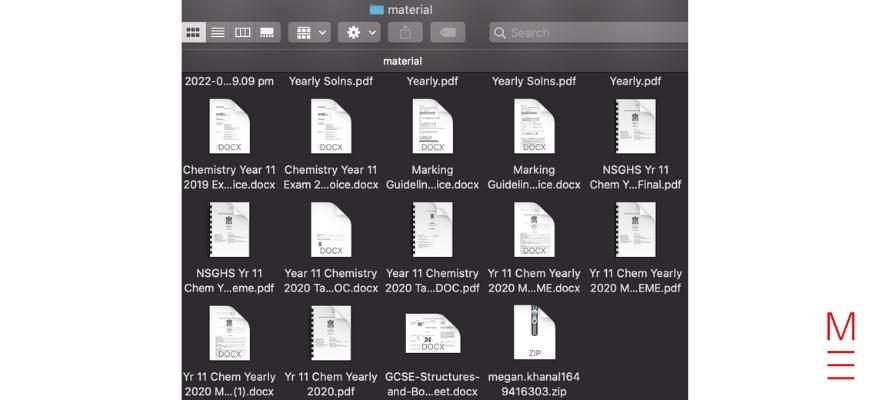UCAT Preparation Course
Matrix UCAT Courses are designed to teach you the theory and exam techniques to acing the UCAT test.
Learning methods available
Select a year to see available courses
Read on to see Megan's best tips for staying on top of Year 11 without sacrificing your personal life!

Join 75,893 students who already have a head start.
"*" indicates required fields
You might also like
There’s no avoiding the fact that senior school comes with a whole lot of new challenges. So, Megan has kindly agreed to share the key insights she’s gained from her Year 11 experience. Especially, how she’s learned to manage the increased workload of Year 11!
Name: Megan Khanal
School: North Sydney Girls High School
Grade: Year 11
ATAR goal: 99.5
University goal: To get accepted into UNSW
Hey! My name is Megan, I am currently sixteen years old and I attend North Sydney Girls High school.
My defining interests would have to be my love for the arts and music! I spend much of my free time learning new songs as best as I can on the keyboard or guitar. I also sing, dance, draw and paint. In school, my favourite subjects are English, because I honestly love having the freedom to analyse the work of amazing writers, and Chemistry – for no particular reason really, just that I do find it fascinating and fun.
I would like to say that I am a hardworking person (sometimes a little competitive too) that loves new challenges and having a set goal to aim towards. Outside of work though, my friends would say that I am a bubbly person that loves taking on new opportunities and meeting new people 🙂
So… on to my article!
The extracurriculars that I do outside of school are Dance (contemporary, aerial silks) and Singing. In school, I am part of our school’s Debating team, I participate on our Philosothon team, am part of our student council, I co-run a public speaking club named Find Your Voice and I am proudly part of our environmental club, GenEarth.
After experiencing 2/3rds of Year 11 (gosh, it flew by quickly), I have to say that it is a bit of a leap from junior years to say the least.
… but I don’t think I ever processed the considerable rise until our very first exam period in term 1 and early term 2. It was hectic, to say the least.
But I have to say, Year 11 is so rewarding too.
You’re finally officially a senior and you’re granted all these opportunities to lead your school and help run events that keep your school lively and colourful 🙂
Also, Year 11 allows you to reflect on your habits. While your workload becomes larger, it also becomes more predictable. So, you are able to build a schedule that fits you. Oftentimes, teachers don’t even check your homework anymore, which teaches you to increase your self-control. As strange as this might be, I do think that this new “pressure” (which luckily has not got too bad yet) has pushed me to rethink priorities, build new, better habits and overall, work to become a resilient, holistic student.
I mentioned this before but I have to say that I love this subject! Though, to be completely honest, I only chose it as a subject because I miraculously scored well on our end-of-year Year 10 exams and was expecting to enjoy Biology, my other science way more. Yet, chemistry has somehow brought its way on top this year.
I’m being 100% here when I say that my love for the subject started with my very first holiday course at Matrix back in the last week of the summer holidays. I attend lessons at Town Hall with my amazingly inspirational and devoted teacher, Dr Peter Jurd.
He has a way of explaining content so effortlessly that it becomes impossible to get lost and he is always there to help you if you ever feel you’re falling behind.
Even though the course was taught in just four days (with the fifth being the dreaded topic test), I was able to understand practically everything and that challenge of learning a whole module in less than a week combined, followed by sweet victory of getting through it, set the foundation for senior school Chemistry for me.
I have always loved English. Even back in primary school, I remember how my aunt would always be so encouraging whenever she read my stories, always saying that I was bound to be an author in the future (obviously an exaggeration but it was so sweet to have that support) and as funny as this is, that love grew as the maths homework piled up in senior school and I felt the necessity to run to the “polar end”, that being, of course, English.
Sure, I have always loved reading and creative writing but I have to say, my favourite part of English now is the analytical study of authors and their work. Maybe it’s my love for philosophy coming in too, but I absolutely enjoy being able to pick apart work, and research context to come up with a whole explanation on why an author wrote the way they did.
Also, I love the structure that comes with an analytical essay and the way I can bring my ideas while combining them with those of academics.
I value the freedom that English brings!
Yes, Extension particularly. I have always enjoyed maths, however, the main difference this year was that the workload from junior years dramatically increased. Of course, this was to be expected, yet, it did not prevent the work from being hard to balance along with all other subjects and demands of extracurriculars. I do think this is why I began to struggle with maths more. I was struggling to find the time to keep up with maths homework and I was falling behind with working on past papers.
At the end of term 1, especially after my first senior maths exam, I realised that this was a problem that I seriously needed to address, so I made a plan. Most days (all except those when I would be coming home late due to extracurriculars), I would do 30 minutes of maths homework (and usually this would end up turning into one exercise) and if I was ever falling behind, I would catch up in the early morning of Saturday.
How did I make sure that I followed through?
Well, the thirty minutes was pretty easy I would just keep a study tracker but for the Saturdays, I would form a bit of a pact with my best friend where we would both decide to wake up early on Saturday and do as much maths homework as we could so that the afternoon could be for extra-curricular, family and other studies.
Usually, for exam preparation, especially in junior years, I would only ever start studying after we received our task notification. This would mean that I would only have a measly two weeks to fill in gaps in my knowledge, work on the provided past papers all while oftentimes hurrying to finish my past homework.
Though, this time around, I feel as though I am much more prepared.
My exam preparation started in Week 4 of Term 2, and my exams were in Week 9. I would have started earlier but I really needed a break after my last few exams Week 2. Please take breaks! Throughout the term, I made sure to keep up with summary notes, vocabulary/terminology for French and Biology, and homework for Maths, and Chemistry. For English, I would sit down a couple of times a week to do short-answer practice questions. However, much of this learning or consolidation process did not take a long time as I had already learned the content in last term’s matrix classes which meant that I could quickly move on to past papers which is where you definitely get real value.
Doing past papers is one of the most efficient ways to study.
So, I have managed to receive some past papers for the subjects that I study from my friends from other schools or the year above. I have found that these past papers end up being the most helpful as they tend to have much more similar content to what we end up doing in school.
I will do roughly 3 past papers for each subject (I make sure to have breaks of course!) per week and this will follow a set weekly rhythm that I have created. Ideally, on the weekend I aim to do past papers in the early morning just so that I can get my brain familiar and comfortable with completing these past papers under conditions more similar to that I would have at school during exams.
Consistent practice is one of the main things that helped me manage the increased workload of Year 11.
I didn’t just use past papers.
For my sciences, I have a couple of favourite YouTubers that I love to watch if I ever need to patch up any gaps in my learning.
Watching Youtube videos is an engaging and time-efficient way to manage the increased workload of Year 11.
For Chemistry:
And for Biology,
You should definitely check them out!

I created a reflection table based on my study techniques from the last term; what worked, and what didn’t and made a plan to change things around. One of these things was keeping up with a mistake journal for my exam practice. I had always done this for mathematics but I admit that I neglected it for my sciences.
So, I have been making sure that I keep more up-to-date with this term. I revisit these mistakes in the days leading up to the exam to hopefully, stop myself from making them again.
I take the Chemistry Holiday Course at Matrix and I have to say, it has by far been the most helpful course that I attend! The benefits are endless but the most notable gain that I found was that I was learning the content right before I learned it at school (as my school runs a module early for Chemistry compared to other schools). This meant that when I walked into school, I would have already understood the content.
So really, all I was doing was consolidating and practising at home and school. This made content stick in much quicker and left me feeling much more confident for future exams. The challenge of this course though, was obviously that it is quite dense – a whole module in less than a week!
But I stand by the fact that it is so rewarding. The course pushes you to work at your absolute best for a couple of days and it wraps the content nicely into a fun week. It really helped me manage the increased workload of Year 11. I will definitely be continuing this holiday course into Year 12.

Sure, you can learn theory all you want, and you can even do the homework. But, if you ask me, past papers are what truly put you ahead of the rest. And I’m not just talking about waiting until your school releases past papers for your particular task. That barely gives you any time. Instead, I’m talking about those from websites that have free prelim papers, old HSC papers, and those from your friends in older grades or other schools. This allows you to start preparation weeks in advance.
I remember thinking it was so silly at the very start of Year 11 to be starting past papers as early as Week 2. Looking back though, I only wish I had started sooner. Past papers include a variety of question types which are all much more likely to appear in your exam than basic Cambridge questions. They also allow you to practise your skills with harder questions and overall round out your skills. All while getting you comfortable with the idea of taking an exam. Not to mention, there have been numerous times where a question I had done in a past paper later appeared in a school exam!

So, the only content-heavy subject I take is Biology, however, I do have some tips! I remember the very first week of school when my Biology teacher announced that the content in Biology is similar in size to the portion of high school Latin study. Now, I personally haven’t done Latin. But, I’ve seen my peers hurriedly fill out large conjugation tables since Year 8 Latin. Sitting through two-thirds of Year 11 Biology, she was most likely right! So, what tips would I give myself at the very start of Year 11?
Well, SUMMARY NOTES!
Personally, I like to take notes in my notebook in class. Then, create summary tables, and finally upload diagrams onto a large Google Doc. I slowly work on that Google Doc from the beginning of the year. This not only helps me revise my knowledge and remember everything but also makes sure that I have enough time to ask any questions well before an exam. It even gives me time to complete questions on the content, practise my writing skills well before the exam period.
I did not follow this in junior years, but my amazing Science teacher had it drilled into us from the first day of Year 11. We had to make sure to facilitate our learning in our own time. You can only do so much at school and/or tutoring. So, the only way to do your best is to address any gaps in your knowledge as soon as possible.
This removes so much pressure from you in the weeks leading up to an exam. It gives you time to ask tutors/teachers any questions, which helps to manage the increased workload of Year 11. Further, you have more time to consolidate your new-learned knowledge through exercises and past papers.
Written by Guest Author
We have regular contributions to our blog from our Tutor Team and high performing Matrix Students. Come back regularly for these guest posts to learn their study hacks and insights!© Matrix Education and www.matrix.edu.au, 2023. Unauthorised use and/or duplication of this material without express and written permission from this site’s author and/or owner is strictly prohibited. Excerpts and links may be used, provided that full and clear credit is given to Matrix Education and www.matrix.edu.au with appropriate and specific direction to the original content.